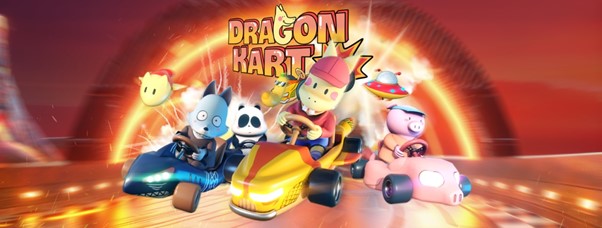A new blockchain-based game is hoping to capitalize on the growing popularity of free-to-play and play-to-earn gaming modes. A skill-based 3D racing game, Dragon Kart is based on a popular Vietnamese cartoon character PikaLong, and combines some of the hottest trends in crypto right now; not least GameFi, DeFi and NFTs.
Cartoon Meets Crypto
As a battle racing game built on Binance Smart Chain (BSC), DragonKart features characters popularized in the successful Vietnamese cartoon PikaLong by the artist Thang Fly, an influencer with millions of followers. PikaLong is a phenomenon in its native Vietnam, having spawned a range of toys, games, decorations and animated movies. After the virality in Vietnam, PikaLong has gone global with millions of fans from all over the world. It used to be one of the most popular stickers on the Zalo platform (64M users until now) – the most popular message app in Vietnam, which can be compared to WeChat in China.
Dragon Kart leverages this popular and familiar concept with cryptocurrency and GameFi allowing players to compete in races, have fun, and earn rewards at the same time. There are two main gaming modes to choose from, free-to-play and play-to-earn.
Rewards are not limited to play-to-earn users, incidentally. The very best free-to-play players can also win rewards, but they have to excel at the game. In the play-to-earn variation of Dragon Kart, racers can stake native $KART tokens to receive POINT. These can then be redeemed for karts, characters and weapons, with all items represented by NFTs and tradable within the Dragon Kart NFT marketplace.
In the play-to-earn mode, there is a greater number of available options for players to choose from including events, contests and championships – both PvC and PvP. Depending on performance, participants are also awarded point bounties. Moreover, players can earn passive income via the usual DeFi mechanisms such as yield farming and staking.
Over time, and as the Dragon Kart community evolves, greater opportunities for play and socializing will emerge. In essence, the platform aims to support its own thriving metaverse of socializing, gaming and fun. This can be seen in Dragon Kart’s teaser video.
Team and Advisors
One of the most eye-catching elements of Dragon Kart is the strong core team behind the project, along with a roster of talented, high-profile advisors.
The advisor list includes:
- Long Vuong — CEO & Founder at Tomochain
- Nang Nguyen — Product Manager at Tomochain and Head of Promotions at LuaVentures
- Kenzi Wang — Co-founder at AU21
- Kyle Nguyen — Founder at VBC Ventures
- Thanh Dao — Co-founder at LaunchZone
- Logan — Co-founder at LaunchZone
Tokenomics
The native token of the Dragon Kart ecosystem is $KART. KART has a limited total supply of 100 million tokens in the BEP-20 standard (Binance Smart Chain), and all transactions in the Dragon Kart ecosystem are denominated in KART.
Over time, a buyback-and-burn mechanism will reduce the total supply of KART by half, making the token extremely deflationary.
Roadmap
Q4. 2021
– Public sale: IDO
– Add LP and exchange listing
– Game V1.0 (PvC racing, NFTs, Market Place, Play to Earn)
– $KART Staking/Farming
– App on Android
Q1. 2022
– Game V2.0 (Multi-players mode, champion/contest/event mode)
– NFT Renting Services
– App on iOS
Q2. 2022
– Game V3.0 (PvC/PvP Racing, Tournaments)
– $KART Lending
– More exchange listings
Q3. 2022
– Multi-chain support
– Game V4.0 (Boss road)
Q4 2022
– Cross-chain Support
– Game V5.0 (Metaverse road)
Timing is Everything
Dragon Kart emerges at a time when play-to-earn titles are performing extraordinarily well. Other skill-based GameFi titles such as Axie Infinity and Crypto Blades have shown how incredibly successful the play-to-earn model can be. With a clutch of engaging features and functionality, Dragon Kart could be the next title to watch out for.
